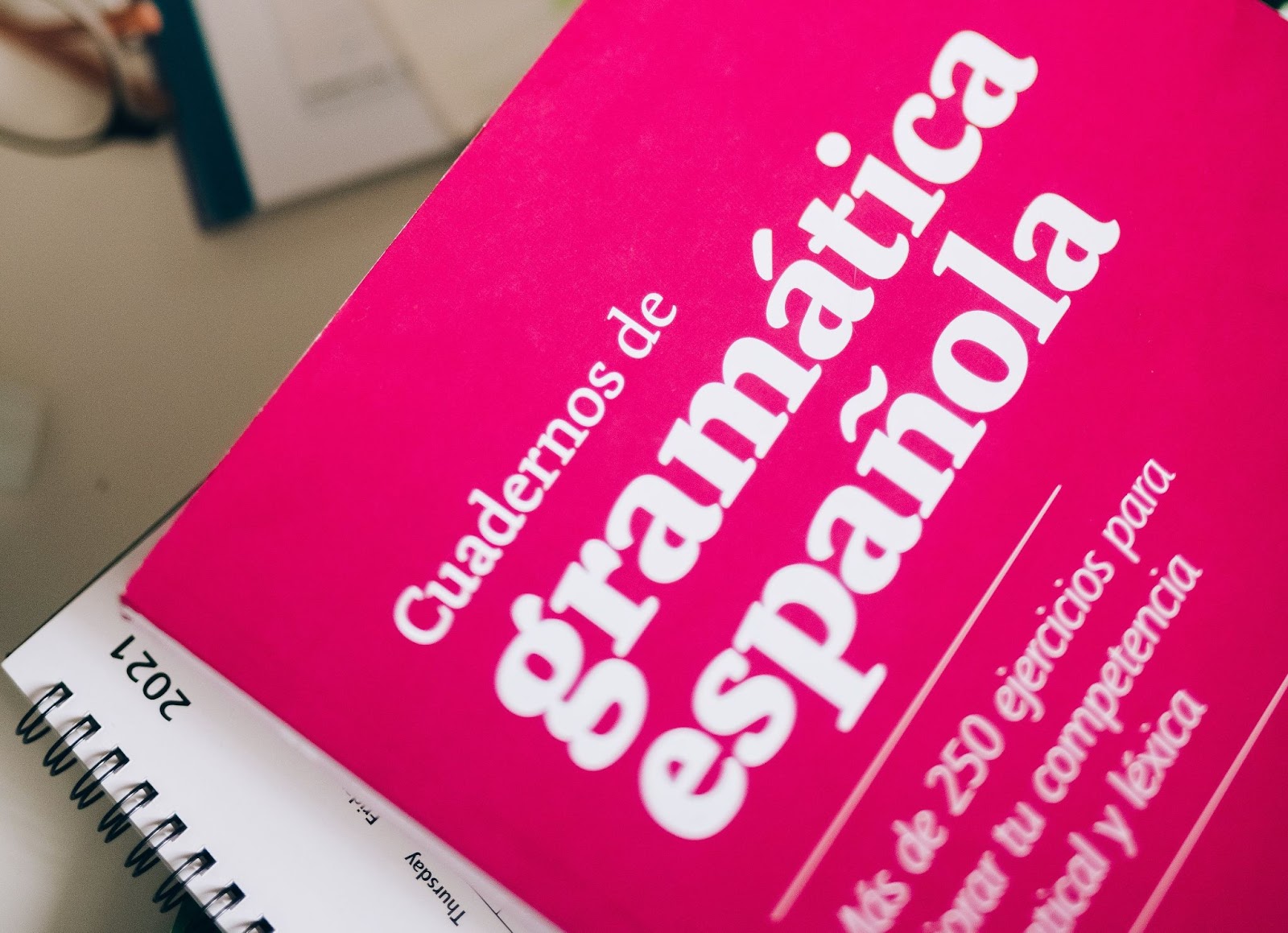
You've made some Spanish-speaking friends - great! But now you need to level up your skills to nurture those relationships. Simply knowing "¿Cómo estás?" won't cut it for long. This guide teaches you 30 different ways to ask someone "How are you?" in Spanish to handle informal greetings, formal situations, and everything in between.
You'll learn the subtle differences between common phrases like "¿Qué tal?" and "¿Cómo te va?" and prepare for curveballs like the Mexican slang "¿Qué onda, wey?" Understanding regional differences is key to conversing comfortably in Spanish. Proper pronunciation matters too, so you'll get tips to sound like a native speaker when informally asking "¿Cómo andas?"
Also, I'll teach you words and Spanish phrases to not only greet someone, but to respond when greeted, too. Ready to master Spanish conversation?
In Spanish, the most common way to say “How are you?” is “¿Cómo estás?” This basic Spanish phrase is widely used in casual, everyday conversations and is the go-to choice for greeting friends, family, and acquaintances in a friendly and informal manner.
There is also the formal variant “¿Cómo está?” This formal version is used among Spanish speakers when addressing someone in a respectful or professional context, such as speaking with a stranger, an elder, or in a formal business setting. Now, let's learn how to say the greeting in Spanish in more creative ways.

¿Cómo estás? - (KOH-moh ehs-TAHS) - "How are you?"
Informal greeting used with friends or peers.
¿Cómo está? - (KOH-moh ehs-TAH) - "How are you?"
Used in a formal setting, this is a respectful and professional version of the greeting.
¿Qué tal? - (keh TAL) - "How's it going?"
Very casual, suitable for friends and informal situations.
¿Qué pasa? - (keh PAH-sah) - "What's happening?"
Informal and colloquial, akin to "What's up?"
¿Cómo van las cosas? - (KOH-moh vahn lahs KOH-sahs) - "How are things going?"
General inquiry about someone's life or affairs.
¿Cómo te va? - (KOH-moh teh vah) - "How's it going for you?"
Informal and personal, focuses on the individual's experience.
¿Cómo le va? - (KOH-moh leh vah) - "How's it going for you?"
Formal version of the previous, for respectful situations.
¿Qué hay de nuevo? - (keh eye deh NWEH-voh) - "What's new?"
Casual, often used as a conversational opener.
¿Qué hay? - (keh eye) - "What's up?"
Very informal and succinct, similar to "What's happening?"
¿Todo bien? - (TOH-doh byen) - "Everything good?"
Casual, inquiring if everything is alright.
¿Cómo andas?** - (KOH-moh AHN-dahs) - "How are you doing?"
Informal, similar to “¿Cómo estás?” but with a slight variation.
¿Cómo te encuentras? - (KOH-moh teh ehn-KWEN-trahs) - "How do you find yourself?"
More formal, often used to inquire about health or mood.
¿Qué onda? - (keh ON-dah) - "What's up?"
Very informal, popular local slang in some Latin American countries.
¿Cómo va todo? - (KOH-moh vah TOH-doh) - "How is everything going?"
General inquiry, suitable in both formal and informal contexts.
¿Cómo se encuentra? - (KOH-moh seh ehn-KWEN-trah) - "How do you find yourself?"
Formal, typically concerning health or well-being.
¿Qué cuentas? - (keh KWEN-tahs) - "What do you tell?"
Informal, asking for any news or updates.
¿Cómo estáis? - (KOH-moh ehs-TICE) - "How are you?"
Plural form in Spain, used when addressing more than one person.
¿Qué me cuentas? - (keh meh KWEN-tahs) - "What can you tell me?"
Casual, expecting news or updates from the individual.
¿Qué hay de tu vida? - (keh eye deh too VEE-dah) - "What's new in your life?"
Informal, showing interest in the person's recent life events.
¿Cómo te sientes? - (KOH-moh teh SYEN-tehs) - "How do you feel?"
Used to inquire about someone's health or emotional state.
¿Cómo va la vida?** - (KOH-moh vah lah VEE-dah) - "How goes life?"
Casual, philosophical inquiry about life in general.
¿Qué sucede? - (keh soo-SEH-deh) - "What's happening?"
Formal, can be used to inquire about an ongoing situation.
¿Cómo está todo? - (KOH-moh ehs-TAH TOH-doh) - "How is everything?"
Formal, general inquiry about life or current affairs.
¿Qué es de tu vida? - (keh ess deh too VEE-dah) - "What's new in your life?"
Informal, similar to “¿Qué hay de tu vida?”
¿Cómo va el día? - (KOH-moh vah ehl DEE-ah) - "How is the day going?"
Casual, typically used during the day to inquire about someone's day.
¿Cómo te ha ido? - (KOH-moh te hah EE-doh) - "How has it gone for you?"
Asking about someone's recent experiences or activities.
¿Cómo lo llevas? - (KOH-moh loh YE-vahs) - "How are you managing?"
Informal, often used to inquire about coping with a specific situation.
¿Qué tal te va? - (keh TAL teh vah) - "How's it going for you?"
Casual, similar to “¿Cómo te va?” with a slightly different phrasing.
¿Qué tal está? - (keh TAL ehs-TAH) - "How are you doing?"
Formal, an alternative to “¿Cómo está?”
¿Qué tal andas? - (keh TAL AHN-dahs) - "How are you doing?"
Similar to “¿Cómo andas?” used in a casual context.

Responding to "How are you?" in Spanish can vary depending on your mood, the formality of the situation, and your relationship with the person asking. Here are 30 ways to respond, including the pronunciation and a brief explanation:
Bien, gracias. ¿Y tú? - (byen, GRAH-see-ahs. ee too) - "Good, thank you. And you?"
A standard, polite response.
Muy bien, gracias. - (moo-ee byen, GRAH-see-ahs) - "Very well, thank you"
When you're feeling particularly good.
Más o menos - (mahs oh MEH-nohs) - "So-so"
For when things are just okay.
No muy bien.- (noh moo-ee byen) - "Not very well"
If you're not doing great.
Estoy cansado - (ehs-TOY cahn-SAH-doh) - "I'm tired"
When you're feeling tired.
Estoy enfermo - (ehs-TOY ehn-FEHR-moh) - "I'm sick"
If you're not feeling well due to illness.
Todo bien, gracias - (TOH-doh byen, GRAH-see-ahs) - "Everything 's good, thank you"
A positive, general response.
No tan bien - (noh tahn byen) - "Not so good"
When things aren't going well.
Estoy estresado - (ehs-TOY ehs-TREH-sah-doh) - "I'm stressed"
When feeling under pressure.
Feliz - (FEH-lees) - "Happy"
When you're in a good mood.
Así así - (AH-see AH-see) - "So-so"
Another way to say you're doing okay.
Estoy ocupado - (ehs-TOY oh-koo-PAH-doh) - "I'm busy"
When you've got a lot on your plate.
No está mal - (noh ehs-TAH mahl) - "Not bad."
Neutral, slightly positive response.
Un poco cansado - (oon POH-koh cahn-SAH-doh) - "A little tired."
When you're somewhat tired.
Regular - (reh-goo-LAHR) - "So-so"
Neutral, neither good nor bad.
Estoy genial - (ehs-TOY heh-NYAL) - "I'm great"
When you're feeling really good.
Estoy bien, gracias por preguntar - (ehs-TOY byen, GRAH-see-ahs por preh-goon-TAHR) - "I'm fine, thanks for asking"
Polite and appreciative.
Como siempre - (KOH-moh SYE-em-preh) - "As always"
When your state is the same as usual.
No puedo quejarme - (noh PWAY-doh keh-HAHR-meh) - "Can't complain"
When things are good enough.
Sobreviviendo - (soh-breh-vee-BYEHN-doh) - "Surviving"
When you're getting by, despite challenges.
Estoy bien, considerando todo - (ehs-TOY byen, kohn-see-deh-RAHN-doh TOH-doh) - "I'm fine, all things considered"
When you're doing well despite circumstances.
Mejor que ayer - (meh-HOHR keh ah-YEHR) - "Better than yesterday"
If you're feeling better than before.
Un poco estresado, pero bien - (oon POH-koh ehs-TREH-sah-doh, peh-roh byen) - "A bit stressed, but good"
When you're managing despite stress.
Estoy emocionado - (ehs-TOY eh-moh-thee-AH-doh) - "I'm excited"
When you're feeling enthusiastic or looking forward to something.
Más ocupado que nunca - (mahs oh-koo-PAH-doh keh NOO-neh-vah) - "Busier than ever"
When you're extremely busy.
Viviendo un día a la vez - (vee-BYEHN-doh oon DEE-ah ah lah vehs) - "Living one day at a time."
When you're taking things as they come.
No está tan mal - (noh ehs-TAH tahn mahl) - "Not so bad"
Slightly positive, things are okay.
Estoy un poco aburrido - (ehs-TOY oon POH-koh ah-boo-RREE-doh) - "I'm a bit bored"
When you're feeling unoccupied or uninterested.
Estoy sorprendido - (ehs-TOY sohr-prehn-DEE-doh) - "I'm surprised"
When something unexpected has happened.
En buena forma - (ehn BWEH-nah fohr-MAH) - "In good shape"
When you're feeling physically well or fit.

Be aware of regional differences in greetings. For instance, "¿Qué tal?" or "¿Qué onda?" might be more common in some countries over the standard "¿Cómo estás?" Adapting to regional usage can make your Spanish sound more natural.
Phrases like “How are you doing?” shouldn’t be translated word-for-word into Spanish (“¿Cómo estás haciendo?”), as it won’t make sense. Stick to standard Spanish greetings.
The tone of your voice and the context in which you ask the question can alter its meaning. For example, “¿Cómo estás?” can be a genuine question about someone’s well-being or a casual greeting with no expectation of a detailed response. Be mindful of your tone and the situation to convey the right message.
In conclusion, saying "How are you?" in Spanish involves understanding the nuances between formal and informal contexts. The key phrases "¿Cómo estás?" for informal and "¿Cómo está?" for formal situations are essential in addressing individuals respectfully and appropriately.
Alternatives like "¿Qué tal?" and "¿Cómo te va?" provide variety in casual settings. Remembering these distinctions and choosing the right expression based on the social context will not only enhance your Spanish communication skills but also show cultural sensitivity and understanding.
Whether you're engaging in a brief exchange or initiating a longer conversation, knowing how to appropriately ask "How are you?" in Spanish is a fundamental skill for any Spanish language learner.
Mexican Slang 101: Master Spanish Slang Used in Mexico